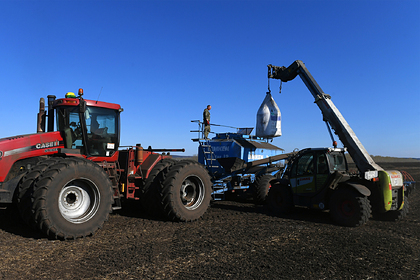Kommersant: Fertilizer Producers Fear Disrupted Shipments Due to Quotas 
abroad due to the introduction of quotas. Kommersant writes about this with reference to sources close to the companies.
Currently, volumes are being sold for January-February, since contracts are usually concluded two to three months before the delivery date. At the same time, the restrictions imposed by the government on the export of fertilizers were established from December 1, 2021 to May 31, 2022. The interlocutors of the publication reported a sharp decrease in the speed of transportation of mineral fertilizers by rail, delays in shipments and the first defaults on contracts.
Although the size of quotas is in line with previous export levels, companies now need to obtain an export license. The Ministry of Industry and Trade and the Ministry of Agriculture must, by November 25, approve the procedure for calculating the volume of quotas and distribute them among producers, but the newspaper's interlocutors fear that the ministries will not meet the deadline. The Ministry of Industry and Trade declined to comment on the situation. The Ministry of Agriculture said that, together with the Ministry of Industry and Trade, they are working out approaches to establish the procedure for issuing, suspending, revoking and canceling licenses for the export of mineral fertilizers.
The Russian Association of Fertilizer Producers (RAPU) reported that in the past few years, export shipments of mineral fertilizers were processed “according to well-established procedures that ensured the rhythmic work of enterprises in the industry and the transport system.” They hope to maintain the situation in the future.
A source in the fertilizer market stated that Russia is considered a reliable supplier of mineral fertilizers, including due to optimal customs regulation. Changing the rules of the game will lead to massive disruption and disruptions throughout the export supply chain. He believes that the already difficult situation with railway cargo transportation on the approaches to the ports will worsen. This will disrupt schedules and negatively affect the quality of other shipments.
The newspaper's interlocutor at a large transport company shares these concerns. In his opinion, the delayed cargoes cannot be quickly reoriented for various reasons. The inadequate capacity of the railways, as well as the shortage of wagon fleet and regional warehouses for storing mineral fertilizers, will affect.
Elena Sakhnova, an analyst at the VTB Capital investment bank, does not consider the situation catastrophic. She hopes that the ministries will have time to prepare the necessary documents by the appointed date. Even if this does not happen, the delay will be no more than a few days, which often occurs with export deliveries, for example, due to bad weather in ports. She believes that suppliers will compensate for these volumes within their semi-annual quota.
On November 3, the government adopted a decree restricting the export of nitrogen and complex nitrogen-containing fertilizers from December 1, 2021 to May 31, 2022. The quota applies to countries outside the Eurasian Economic Union (EAEU). The size of the quotas is 5.9 million tons for nitrogen fertilizers and 5.35 million tons for those containing two or three nutrients – nitrogen, phosphorus and potassium. Russian Prime Minister Mikhail Mishustin explained the new measures by the need to provide the domestic market with fertilizers in order to avoid an increase in food prices.